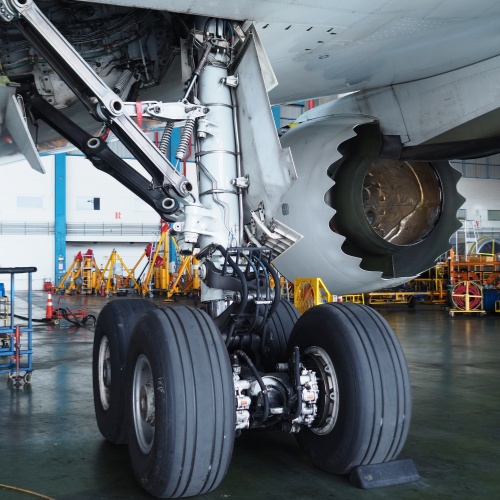High-specification components require materials that deliver exceptional strength, durability, and resistance to harsh environments. Aluminum bronze, a versatile copper-based alloy, meets these demands with its unique mechanical and physical properties. Widely used in industries such as marine, aerospace, and industrial manufacturing, aluminum bronze stands out as an ideal choice for high-performance applications. This article delves into the properties, benefits, and applications of aluminum bronze, showcasing why it excels in demanding environments.

Understanding Aluminum Bronze
1. Composition and Types
Aluminum bronze primarily consists of copper and aluminum, with additional elements like nickel, iron, and manganese to enhance its properties. The aluminum content, ranging from 5% to 12%, imparts strength and corrosion resistance. Common variants include:
Nickel-Aluminum Bronze: Offers superior corrosion resistance and strength.
Iron-Aluminum Bronze: Provides enhanced wear resistance for heavy-duty uses.
Silicon-Aluminum Bronze: Ensures improved machinability for precision applications.
2. Unique Properties
Aluminum bronze’s distinctive attributes include:
High Strength: Comparable to steel while providing better corrosion resistance.
Corrosion Resistance: Excels in marine and chemically aggressive environments.
Thermal and Electrical Conductivity: Maintains good conductivity with structural integrity.
Non-Sparking and Anti-Magnetic: Ensures safety in hazardous conditions.
Benefits of Aluminum Bronze for High-Specification Components
1. Corrosion Resistance
Aluminum bronze develops a protective oxide layer, preventing further degradation. This makes it highly suitable for harsh environments, such as marine applications where components like propellers and shafts face constant exposure to saltwater.
2. Wear Resistance
The alloy’s hardness and abrasion resistance extend the lifespan of components like bearings and bushings, reducing maintenance needs and operational downtime.
3. High Strength and Load-Bearing Capacity
With excellent tensile strength, aluminum bronze performs well under heavy loads and stress, making it a reliable choice for aerospace and oil and gas industries.
4. Non-Sparking and Anti-Magnetic Properties
In hazardous environments, such as oil rigs or explosive atmospheres, aluminum bronze’s non-sparking nature ensures safety. Its anti-magnetic properties are equally valuable in electronic and military applications.
5. Aesthetic Appeal
The alloy’s golden hue adds visual appeal to architectural features like railings and cladding, blending beauty with functionality.
Key Applications of Aluminum Bronze
1. Marine Industry
In the marine sector, aluminum bronze is the preferred material for propellers, rudders, and other underwater components due to its resistance to saltwater corrosion and biofouling.
2. Aerospace
High-performance components such as bearings, bushings, and landing gear rely on aluminum bronze for its strength, durability, and wear resistance.
3. Oil and Gas
Aluminum bronze’s non-sparking properties make it ideal for tools, valves, and pipeline fittings in oil and gas operations, enhancing both safety and longevity.
4. Industrial Equipment
The alloy’s wear resistance is invaluable for gears, shafts, and bearings used in heavy machinery, ensuring reliable performance under extreme conditions.
Comparing Aluminum Bronze to Other Materials
1. Steel
While steel offers high strength, it is prone to corrosion without protective treatments. Aluminum bronze provides comparable strength with superior corrosion resistance, reducing long-term maintenance costs.
2. Brass and Other Copper Alloys
Brass lacks the strength and corrosion resistance of aluminum bronze. For high-stress and harsh environments, aluminum bronze outperforms other copper alloys.
3. Composites and Advanced Materials
Although composites are lightweight, they often fall short in durability and thermal resistance. Aluminum bronze balances performance and cost, making it a practical choice for demanding applications.
Factors to Consider When Choosing Aluminum Bronze
1. Environmental Conditions
The specific environment dictates the choice of alloy. Marine-grade aluminum bronze resists saltwater corrosion, while industrial applications demand wear-resistant variants.
2. Load and Stress Requirements
Selecting the appropriate alloy variant ensures optimal performance under varying mechanical stresses and loads.
3. Maintenance and Longevity
Aluminum bronze’s minimal maintenance needs and long service life make it a cost-effective option for many industries.
Common Misconceptions About Aluminum Bronze
Misconception 1: Aluminum bronze is prohibitively expensive.
While it has a higher initial cost, its durability and low maintenance needs reduce total lifecycle costs.
Misconception 2: It is difficult to machine.
Advances in machining techniques have significantly improved its workability.
Misconception 3: Its use is limited to marine applications.
Aluminum bronze is versatile, excelling in aerospace, industrial, and architectural uses as well.
Aluminum bronze combines strength, corrosion resistance, and non-sparking properties, making it an excellent choice for high-specification components. From marine to aerospace industries, this alloy delivers reliable performance in the most challenging environments. Its durability, aesthetic appeal, and versatility ensure long-term value, solidifying its place as a top-tier material for critical applications.
If you're considering aluminum bronze for your next project, reach out to our team. We offer expert guidance to help you select the right grade and provide customized solutions to meet your specific requirements. Contact us today to learn more about the benefits and applications of aluminum bronze!
Reference
Why Aluminum Bronze Is A Good Choice For High-Specification Components